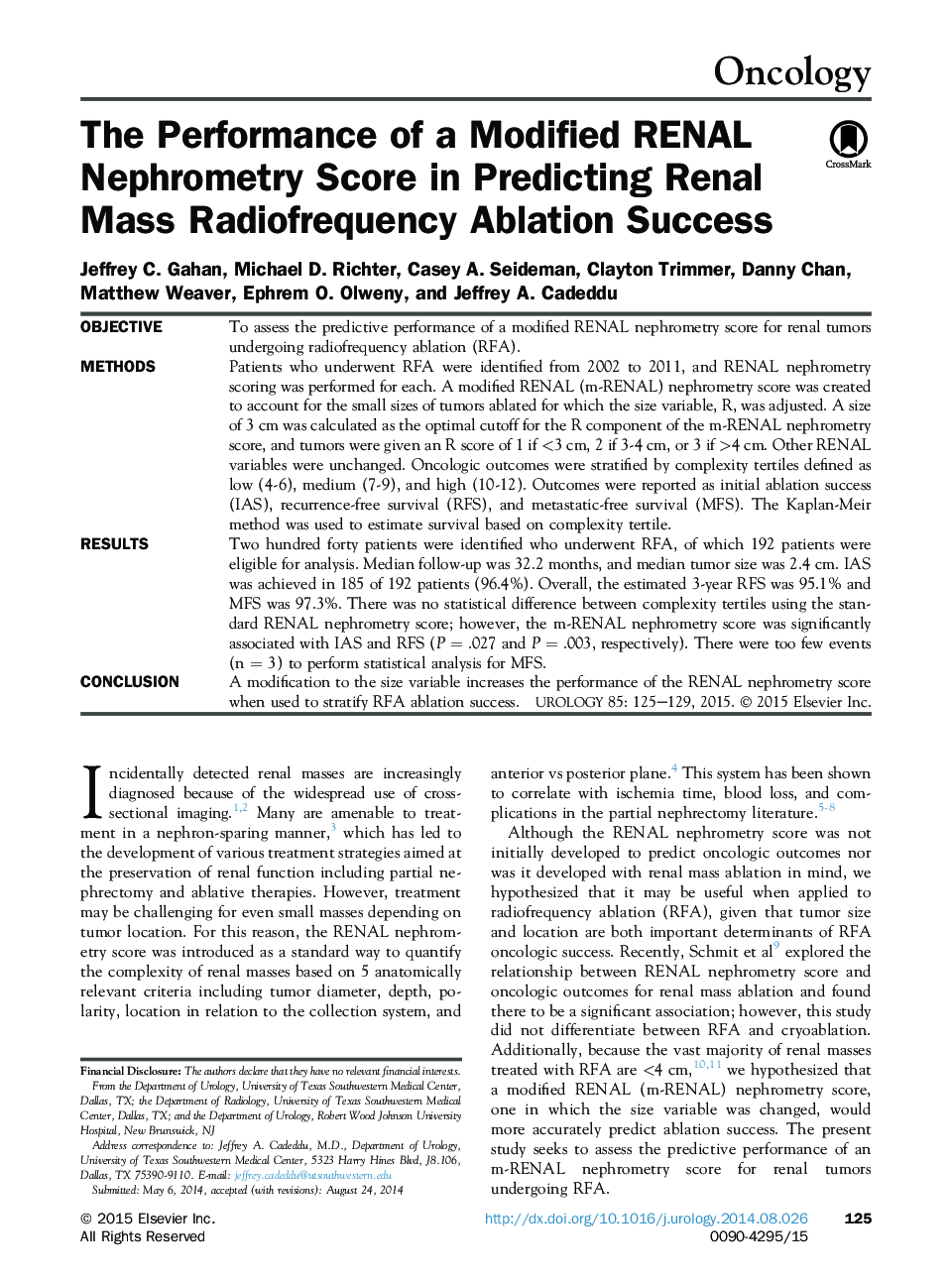| Article ID | Journal | Published Year | Pages | File Type |
|---|---|---|---|---|
| 3899039 | Urology | 2015 | 5 Pages |
ObjectiveTo assess the predictive performance of a modified RENAL nephrometry score for renal tumors undergoing radiofrequency ablation (RFA).MethodsPatients who underwent RFA were identified from 2002 to 2011, and RENAL nephrometry scoring was performed for each. A modified RENAL (m-RENAL) nephrometry score was created to account for the small sizes of tumors ablated for which the size variable, R, was adjusted. A size of 3 cm was calculated as the optimal cutoff for the R component of the m-RENAL nephrometry score, and tumors were given an R score of 1 if <3 cm, 2 if 3-4 cm, or 3 if >4 cm. Other RENAL variables were unchanged. Oncologic outcomes were stratified by complexity tertiles defined as low (4-6), medium (7-9), and high (10-12). Outcomes were reported as initial ablation success (IAS), recurrence-free survival (RFS), and metastatic-free survival (MFS). The Kaplan-Meir method was used to estimate survival based on complexity tertile.ResultsTwo hundred forty patients were identified who underwent RFA, of which 192 patients were eligible for analysis. Median follow-up was 32.2 months, and median tumor size was 2.4 cm. IAS was achieved in 185 of 192 patients (96.4%). Overall, the estimated 3-year RFS was 95.1% and MFS was 97.3%. There was no statistical difference between complexity tertiles using the standard RENAL nephrometry score; however, the m-RENAL nephrometry score was significantly associated with IAS and RFS (P = .027 and P = .003, respectively). There were too few events (n = 3) to perform statistical analysis for MFS.ConclusionA modification to the size variable increases the performance of the RENAL nephrometry score when used to stratify RFA ablation success.
